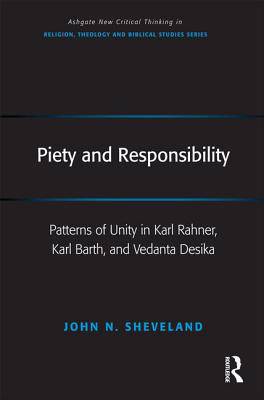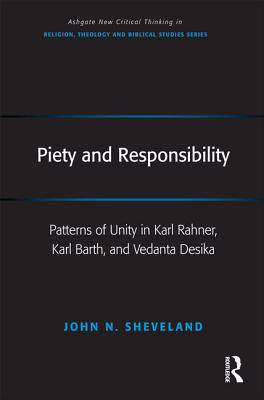
- Afhalen na 1 uur in een winkel met voorraad
- Gratis thuislevering in België vanaf € 30
- Ruim aanbod met 7 miljoen producten
- Afhalen na 1 uur in een winkel met voorraad
- Gratis thuislevering in België vanaf € 30
- Ruim aanbod met 7 miljoen producten
Zoeken
Piety and Responsibility
Patterns of Unity in Karl Rahner, Karl Barth, and Vedanta Desika
John N Sheveland
€ 343,45
+ 686 punten
Uitvoering
Omschrijving
This book analyzes the writings of Karl Rahner, Karl Barth and Vedanta Desika to disclose how each construes "piety" and "responsibility" as integral to each other. Each theologian expresses a fundamental unity of love of God and love of neighbour. Sheveland explores this unity in ecumenical and interreligious frameworks, showing how these authors privilege theology as practice, enactment, or simply as ethical. He uses the Renaissance genre of musical polyphony as a methodological tool to investigate the aesthetic quality and the similarity-in-difference of the theological voices being compared.
Specificaties
Betrokkenen
- Auteur(s):
- Uitgeverij:
Inhoud
- Aantal bladzijden:
- 224
- Taal:
- Engels
- Reeks:
Eigenschappen
- Productcode (EAN):
- 9781409409052
- Verschijningsdatum:
- 19/05/2011
- Uitvoering:
- Hardcover
- Formaat:
- Genaaid
- Afmetingen:
- 156 mm x 234 mm
- Gewicht:
- 494 g

Alleen bij Standaard Boekhandel
+ 686 punten op je klantenkaart van Standaard Boekhandel
Beoordelingen
We publiceren alleen reviews die voldoen aan de voorwaarden voor reviews. Bekijk onze voorwaarden voor reviews.








